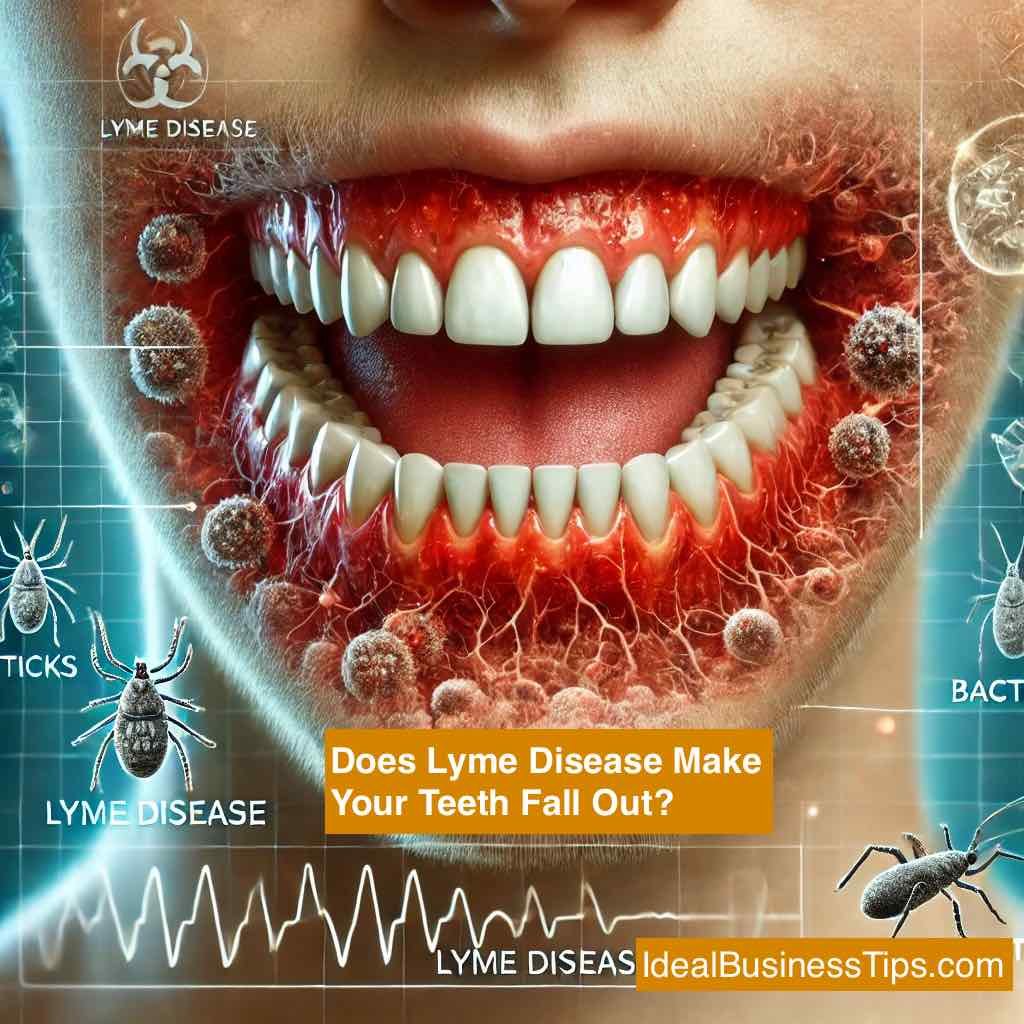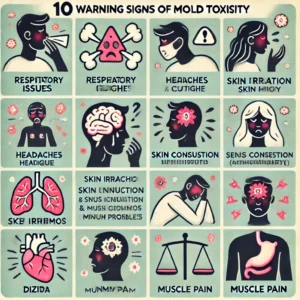Understanding Lyme Disease: Does Lyme Disease Make Your Teeth Fall Out? Or does it have any adverse impact on your dental health? Lyme disease, caused by the bacterium Borrelia burgdorferi which is transmitted through a tick, is recognized chiefly for causing skin, cardiac, neural, and joint manifestations. But a less noted problem attached to it is whether Lyme disease makes your teeth fall out or not.
In this guide Learn more about how Lyme disease affects the dental health of a person Some of the issues looked at include Identifying symptoms As they relate to the mouth and gums Identifying some possible treatments for Lyme disease Possible ways to prevent Lyme disease
Lyme disease and its signs and symptoms: An Introduction
Lyme disease will have a variety of symptoms which may range from mild to severe depending on the stage of the disease. The early features are as follows: erythematous skin lesion in a defensive posture known as the primary bull’s eye lesion, fever, chills, headache, lethargy, and myalgias arthralgias. The disease also gets severe and long-term effects as it advances. The signs and symptoms may include arthritis, neurological diseases, and cardiac complications. But, the question remains: of course, Lyme disease can also cause your teeth to fall out.
Lyme Disease is a Source of Direct Damage to Teeth
In one way or another, Lyme disease does not cause literal consequences like tooth decay, but the following are some related consequences. For instance, contagious Lyme illness can cause ‘Lyme arthritis’ that leads to severe pains and inflammation in one’s joints making the simplest activities such as brushing and flossing to be a nightmare. This might translate into poor oral hygiene leading to periodontal diseases which are incidental though, to tooth loss.
Some research on Lyme Disease and Periodontal Health
Other researchers have researched and reviewed the systemic ramifications that Lyme disease has on the rest of the body, oral regions being mouth and gums inclusive. While there are not a lot of direct connections, certain symptoms can lead to altered capacity for oral health as a result of Lyme Disease. A person with a compromised immune system will be at a lower capacity in combating infections that plague the gums particularly. Lyme disease seems to have something to do with your teeth falling out, correct me if I am wrong. However, the complications that develop from the associated symptoms could be, though not directly.
Speaking in Person and from Experience
Personal narratives and anecdotal records show that patients with chronic Lyme disease complain of dental problems including higher rates of dental cavities, damaged tooth enamel, and even loss of teeth. However, these cases are usually ascribed to secondary effects such as dry mouth which is associated with medicines taken to treat this illness, not the Lyme illness per se that makes teeth fall out.
Surveillance and Early Warning Measures as well as Recommendations on Dental Health
For people with the LYME disease, it is important to ensure that the mouth is clean. Fluoride treatments, proper brushing and flossing, and occasionally dental check-ups can possibly reduce dental complications. Another point to note is that the patient should inform their dental care provider about the tick bite or Lyme disease if there is a history of either.
They are members who offer professional advice regarding Lyme disease, and oral health.
Lyme disease is one of those health complications that dental and medical practitioners recommend that a patient has to embrace an overall management approach to ward off the ailment. To answer the question does Lyme disease make your teeth fall out the answer would be no but to prevent tooth loss one must keep the immune system strong by eating right exercising and taking good care of oneself.
Conclusion: Lyme Disease and Dental Health
Therefore although Lyme disease does not cause your teeth to fall out it results in conditions that contribute to your dental health. Lyme disease has to be managed properly and dental care has to be done vigorously to ensure the teeth do not go bad. Education and prevention are to be your only strategies in approaching the challenges of Lyme disease and its consequences for your well-being.
In this article, these relations have been uncloaked and the reader has been provided with an understanding of the question, ‘’Does Lyme disease make your teeth fall out,’ and more to do with overall health dimensions. Knowing and recognizing the vicarious consequences of this ailment, one can more effectively confront Lyme disease and other related conditions.
Lyme Disease & Dentistry: A List of Frequently Asked Questions
Q1. Is there anything Lyme disease can actually be blamed for such as rotten teeth and the subsequent fall of teeth?
Lyme disease, no, does not make your teeth fall out. Not directly. In its own right, Lyme disease does not make one lose their teeth. But it can cause conditions that may have an impact on dental health in a less direct manner, for example modifying the immune system in a way that does not allow the body to fend off infections such as gum disease.
Q2. Can Lyme disease cause symptoms like flu-like symptoms, including fever, aching, headaches, muscle weakness, fatigue, and a tick-like rash?
The main early clinical manifestations are a rash, often resembling a target or ‘bull’s eye’, fever, headache, fatigue, arthralgia, and in later stages arthritis, neurological complications, and cardiac involvement.
Q3. In the category of weak medical association, how does Lyme disease influence oral health?
Lyme disease can consequently impact a person’s general health and well-being, including oral health because it can cause arthritis that could inhibit a person’s capacity to clean their teeth effectively. Moreover, some of the drugs used in the treatment of Lyme’s disease lead to dryness of the mouth and therefore promote the occurrence of dental caries and periodontal diseases.
Q4. How should patients with Lyme disease prevent or minimize the risk of oral cavity diseases?
Lyme disease patients should brush their teeth regularly and go for checkups from the dentist and inform them of their condition. In the management of dry mouth, it might be useful to use certain mouthwashes or increase the frequency of fluoride rinses.
Q5. Is there dental disease associated with Lyme disease?
As a result of Lyme disease, associated conditions that include dry mouth from medications, weak immune system, and inability to undertake mouth hygiene as a result of joint pains increase the risk of cavities, periodontal diseases, and possibly tooth loss.
Q6. So how do you avoid dental issues when you are suffering from Lyme disease?
The best preventive measures include proper oral hygiene, proper treatment of Lyme disease symptoms, and adjustment of dental care as per the physical condition affected by Lyme symptoms. Visits to both physicians and dentists are advised to be regular.
Q7. What are the consequences of Lyme disease medication on the oral system?
Oral side effects of drugs for Lyme disease include dry mouth resulting from a decrease in saliva production due to long-term use of antibiotics. Saliva is essential in the production of certain enzymes that are used in the breaking down of food, control of bacteria that produce acids that dissolve tooth enamel, and as a medium for rinsing the mouth. When there is not enough saliva, the chances of getting a cavity or even gum disease are real.
Q8. Can Lyme disease be cured and will ocular problems regress after undergoing the appropriate treatment?
Lyme disease is curable particularly if it has not advanced and can be managed by the use of antibiotics. For dental problems, any disorder that has appeared as a consequence of the secondary effects of Lyme disease (e.g., dry mouth or a failure to practice proper dental hygiene as a result of arthritis) will require dental treatments and will not clear up solely as a result of Lyme disease treatment.
Q9. That is to say, should patients living with Lyme disease have to visit a dentist more often?
Lyme disease may contribute to the development of dental problems therefore, the patient may require more frequent checkups with a dentist. It is recommended to speak about the best schedule with a dentist, given the personal state of health.
These FAQs are designed to give information to those who are concerned with Lyme disease and its effect on dental health, answering the question: Does Lyme disease make your teeth fall out?











